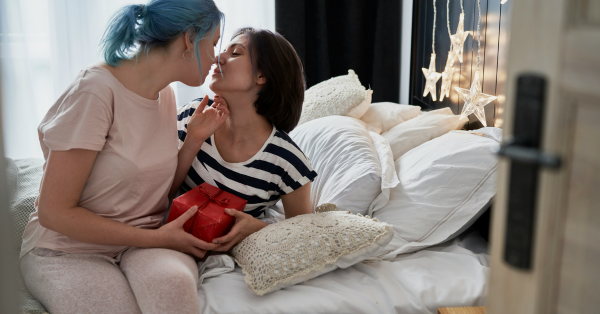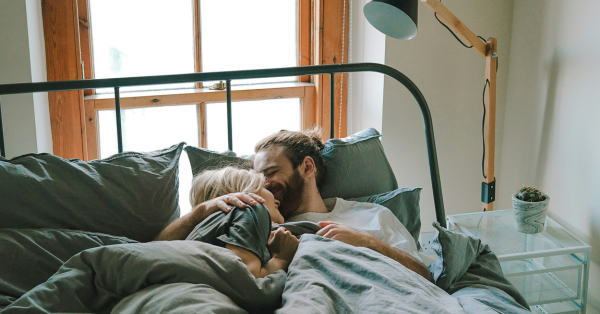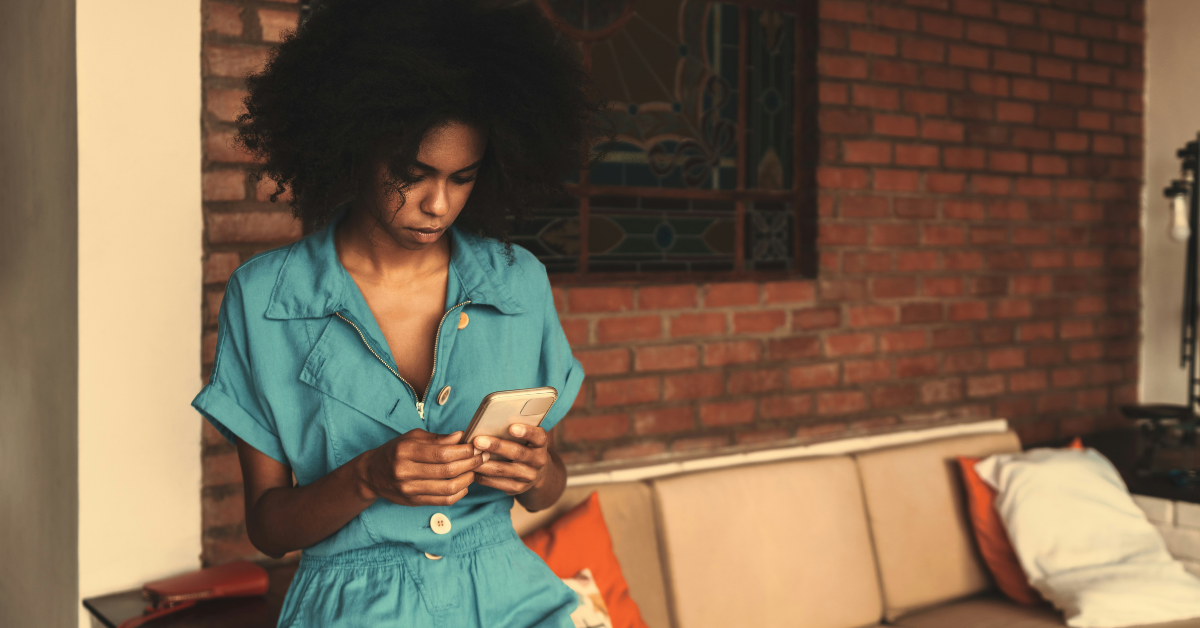by Lexi Inks
While there’s no actual timeline for reaching milestones in adulthood, it’s still valid to feel like you’re “behind” in certain areas of life. Whether it be getting married, buying a house, or having children, seeing wedding pictures of your high school classmates on Facebook or pregnancy announcements on Instagram while you’re single or not in that chapter of your life can easily (and understandably) make you feel like you need to catch up with your peers. If you’re in your 20s or 30s and haven’t had sex yet, losing your virginity later in life can add a whole other layer of complex emotions.
Unlike going through puberty, becoming sexually active isn’t a universal experience that happens at the same time for everyone. Despite this, the media and entertainment we consume often try to convince us otherwise by portraying virginity as something most people lose earlier in life. If you’re still a virgin in your 20s or 30s, believe it or not, 27% of U.S. adults aged 25-39 are also in your shoes, according to a 2018 survey by Paramount. The idea that most people lose sex early on, coupled with the nationwide lack of proper sex education, can be attributed to feelings of inadequacy or embarrassment that people with that experience might feel — even though it’s totally not necessary.
“There are many reasons for delayed sexual interaction, and sadly, it has to do with external expectations,” says certified sexologist and sex and relationship coach Dr. Janet Morrison, noting that some of these reasons include a religious upbringing, wanting to avoid the stigma of being perceived as a “slut,” or lack of education around sex. “What I rarely see is a person who is delaying sexual activity in an empowered way — because they first want to be fully informed, learn about themselves, consent and what they like and want.”
No matter your reasoning for waiting until later in your young adulthood, being a virgin in your 20s or 30s is completely valid, and experts say even has some perks that you might not expect. If this is your experience, read on for all the expert advice you need on losing your virginity later in life.
Pros And Cons Of Losing Your Virginity Later In Life
Even if it’s not a conscious decision, but something that just happened, being a virgin later in life can still have benefits for you. Certified sexologist and sex therapist Dr. Gloria Brame says that many of the reasons someone might choose to wait to become sexually active are psychological — and some are relatively helpful. “If you feel it’s a moral choice to wait, or your priorities skew towards career and study, you will feel much better about yourself if you stay the course. There are even those who really wish to be able to say their husband or wife was their first because it makes them feel proud.” While typically waiting until marriage to have sex derives from religious reasons, sharing that connection with one partner can be a special bond, even if you choose to do so for other reasons.

Other pros involve biological reasons, especially those that can make your first sexual experiences even better, Morrison says. “Your body/brain response will be more mature and inline — the frontal lobe of the brain, which helps us make decisions, is not fully formed until the mid-20s. Therefore, in earlier sexual interactions, one could be ruled more by body response versus the logic that could promote safety and pleasure.” Having this maturity and biological understanding in your mid 20s and beyond can help you have a better grasp on what might make you feel good and comfortable when you’re becoming sexually active.
The cons? Experts share that they can really vary depending on why you decided to wait. If your choice is based on avoiding shame or feeling obligated by your religious beliefs, Brame says that there is a chance you might find that you and your partner end up dealing with sexual incompatibility or conflict surrounding your sex life. “I’ve worked with people who married as virgins, only to discover deep sexual incompatibilities or lack of understanding of how good sex works. They assume that ‘once you get married it will all work itself out.’ Instead, they may find themselves struggling with an unfulfilling sex life — or much worse, constant fights over sex.”
Morrison also shares that even if this isn’t your situation, external factors, like worrying how others perceive you, might have a negative effect as well.
Equip And Empower Yourself With Knowledge
If you’re waiting to have sex until later in life, or have done so already and are now interested in experiencing it, experts say that it’s incredibly important to learn what you can about what it takes to have a fulfilling, pleasurable, and healthy sex life. This includes what would be specifically helpful to you personally, rather than what other people have found to be so.

“Know that, as in most things in life, we do not really know how we will respond until the situation happens, and from that knowledge, we can fine-tune or redefine what we want,” Morrison says. “Additionally, sex changes throughout the lifespan and what works for us now may not later. Be flexible and know it is ok to change.” She recommends taking steps like getting information from a sex education professional and learning communication skills, but one of the best and most effective methods of getting prepared to have sex for the first time is to masturbate. Self-pleasure is incredibly critical to learning what your turn-ons are, what doesn’t turn you on, and how your body reacts to certain positions, toys, stimulations, etc. This can absolutely help prepare you for becoming sexually active with a partner, because you can guide them into things that make you feel pleasure, and feel much more confident and empowered in the bedroom.
Brame also encourages you to think about the potential that external factors have influenced your decision to wait, when you might not have wanted to otherwise. “The big question is: what is holding you back?” she says. “If it’s shyness or low self-esteem, work with a sex-positive person who can heal your anxieties. If it’s a lack of opportunity, try putting yourself in more situations where you can meet potential partners. If it’s a belief system or fear that it’s immoral, then perhaps get support from caring friends or a therapist until you can accept that it’s normal to have lust, and to want to express it safely with a trustworthy partner.”
How To Talk To A Partner About Being A Virgin
Whether you’re in a relationship with someone new or are newly dating, talking to your partner about being a virgin in your 20s or 30s can be intimidating. While there’s no real need to feel shame or embarrassment about your decision, even if it wasn’t really a voluntary one, it’s okay to have those feelings come up. Your sex life is personal and unique to you, and that can come with a lot of emotions. That said, being open and communicative is the key to starting the conversation, says Morrison.

“Most people will avoid talking about difficult things for fear of judgment and that the other person will then not want to be with them. My recommendation is to speak your truth up front,” she says. “If the other person judges you, makes you feel uncomfortable, or is unwilling to participate, they are not what you wanted anyway. You have nothing to lose but a mismatched experience.” One way Morrison suggests approaching this is to write down talking points with everything you want to say, and practice it before you talk to your partner. This can make you feel more prepared and, in turn, confident about starting the conversation.
If you’re wanting to take some of the pressure off, make it a more casual conversation, or even just get it over with, Brame says you can even send a text to your S.O. about being a virgin. “Simply say ‘I don’t have experience but I’m ready to build some with you!’ To the right person, that’s a very sexy start!” This can also give you the chance to form your words more carefully or give you more control over the direction of the conversation. But no matter what happens, Brame also reminds you that your decisions are valid and more than okay — and the right person will validate that. “You don’t owe anyone an apology for your sexual choices or needs — neither before or after sex. What’s important is building trust, then moving forward and seeing if your new partner and you like the erotic experiences you have together. If you do, have all the fun you want!”






